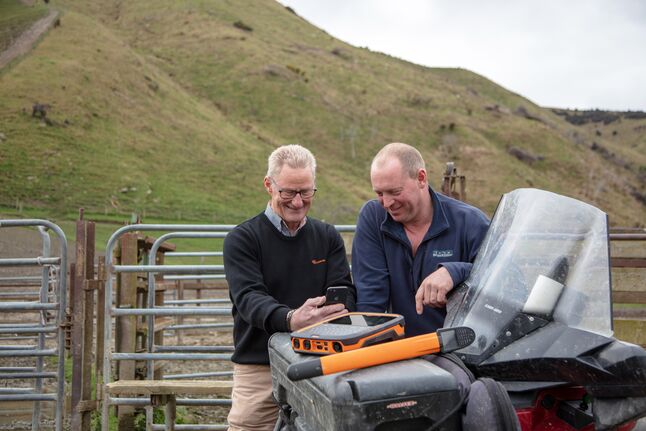Make a premium on your lambs by weighing your stock regularly
Wednesday, 20 July, 2022

Recent lamb processing backlogs mean some farmers have missed out on securing premiums for target weight animals sought after by overseas customers. Gallagher’s Territory Manager for Otago, Lindsay Whyte, says the issue is a timely reminder about the importance of regularly weighing stock and using data to inform feed and culling decisions.
“Sheep farmers have been severely affected by a backlog of animals at processing plants around New Zealand as the COVID-19 Omicron wave has caused meat processing to be squeezed, with staff off sick. While most plants are back to full capacity, not being able to send animals for processing means many farmers missed out on receiving premium payments for their animals and had to hold mobs over.”
Processing companies aim for a target carcass weight of 20kg for lambs. This is determined by customer demand for a certain sized product. Lambs over 20kg do not receive the same premium.
“If a farmer sends a mob of lambs for processing and some are under or over the 20kg mark, it can start to blow out their returns in what is already a challenging market,” says Lindsay. “While the processing delays were outside farmers’ control, regularly weighing stock is a tool farmers can use in these situations to help them make a feed plan for any mobs they have to hold over.”
Securing premiums for lambs highlights the importance of farmers regularly weighing individual animals as part of the way they farm every day to ensure they meet target weights and maximise returns.
Lindsay says around one third of farmers in his region still choose to assess animal weights by eye or have stock agents assess whether they were ready for processing. “You can’t manage what you don’t measure. If farmers want to get their animals as close to that 20kg weight as possible they need to be monitoring their progress and adjusting their feeding regime to suit,” says Lindsay. “Regularly weighing your stock also helps you catch any animal health issues early on.”
Hitting stock weighing targets to maximise opportunities & minimise risk
Beef + Lamb New Zealand Chief Economist Andrew Burtt says the forecast average value of sheep meat exports is currently at a record high, up 18 per cent up on the five-year average. But farmers are still facing many challenges. While farmgate prices have been good, he says farmers are still wary about the impact of the Omicron variant of COVID-19 on processors and whether they can move their livestock off farm when they need to.
“Demand in all key markets for New Zealand lamb is strong. There is a limited global supply of sheep meat, and strong consumer demand is supporting higher in-market prices, but farmers are still facing a challenging environment from uncertainty in processing, to changes in climate and environmental policy and the impact of on-farm inflation,” says Andrew.
He says the premiums paid by processors for certain weights are driven by customer demand and that farmers work hard to meet those targets to ensure they receive a premium for their product. "Hitting targets maximises opportunities and manages risk in a time of uncertainty," says Andrew. “The possibility of holding livestock for longer than needed also adds additional pressures for feed.”